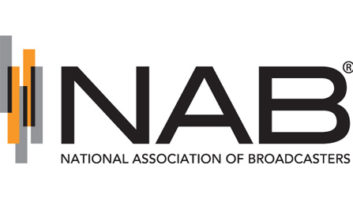President Bush recently signed the Broadcast Decency Enforcement Act, increasing the potential fines for broadcasting indecent material by a factor of 10. The former max – a mere pittance at $32,500 per violation – is history. Now you’re looking at a much heftier $325,000 per violation, up to a limit of $3 million per day.
This massive increase in potential fines, along with an aggressive (and unpredictable) enforcement stance by the FCC, should inspire every broadcaster to review its programming and operations policies to minimize the risk that a stray off-color remark paints their balance sheet red.
Meanwhile, “indecency hawks” now have a solid majority on the FCC, with newly-minted Commissioner Deborah Taylor Tate quoted in several publications as calling for more legislation and regulation to reduce inappropriate content and promote quality children’s programming.
The commission’s zeal for bringing the regulatory hammer down on perceived indecency was also evident in the agency’s super-fast action flatly denying CBS’s appeal of the Super Bowl/Janet Jackson fines – the FCC’s order was adopted and released barely a month after CBS filed its petition for reconsideration.
If you missed the point back in March, when the commission issued a flurry of indecency rulings, it should be clear by now: Unless and until the courts tell the commission it can’t, the FCC is determined to use its regulatory power to impose six-figure fines. And since Chairman Martin has long advocated doling out separate fines for each separate utterance of a profanity, fines could quickly hit the million-dollar mark for a single broadcast if a majority of the commission comes around to his way of thinking.
These developments have left broadcasters scrambling for ways to protect themselves from potentially devastating liability. Unfortunately, there is no one simple answer.
Back and forth
Although the politicians and “family-values” activists would tell broadcasters to “just say no” to indecent programming, local broadcasters know that, for many reasons, it’s not that easy. The FCC’s decisions over the past two years have made it extraordinarily difficult for broadcasters to determine the line between distasteful and unlawful.
While the FCC’s rules restrict programming that is obscene, profane or indecent, broadcasters generally don’t even come close to “obscenity,” which involves Really, Really, Really Bad Stuff. But that still leaves “indecency” and “profanity,” neither of which may be broadcast between the hours of 6 a.m. and 10 p.m.
While the concept of “indecency” has been with us for more than three decades, albeit in varying forms and subject to varying enforcement protocols, “profanity” is a relative newcomer. It popped onto the FCC’s radar screen in March of 2004, in the wake of L’Affaire Janet Jackson.
Despite the traditional religious connotations of the term “profanity,” religion doesn’t enter into the FCC’s use of that word. Rather, as far as the commission is concerned, language must have a sexual or excretory connotation to be legally profane.
In its most recent decisions, the FCC suggested that profane words are those that are “so grossly offensive as to constitute a nuisance.” The FCC has singled out the “S-Word” and the “F-Word” (and their many variations) as presumptively profane except in “unusual circumstances.” Recent court filings, however, suggest that the FCC may be further refining its definition of profanity in the near future.
Meanwhile, the precise definition of “indecency” remains elusive. According to the FCC, broadcast indecency involves “language or material that, in context, depicts or describes, in terms patently offensive as measured by contemporary community standards for the broadcast medium, sexual or excretory organs or activities.” But as we have repeatedly seen, that definition affords broadcasters little useful notice as to how the commission will rule in any particular case.
The FCC’s historical approach to the so-called “F-word” illustrates this. While use of that word has normally been, er, discouraged, it was not absolutely prohibited, George Carlin’s suggestion to the contrary notwithstanding. In October of 2003, the FCC’s Enforcement Bureau said as much when it declined to issue a fine for Bono’s excited use of the term when his band won a Golden Globes award.
But then came Super Bowl 2004, and the bureau’s decision was reversed. As a result, the commission seemed to say that you could never, never, ever drop the F-bomb on the air.
But then came Veterans Day 2004, when a number of TV stations wanted to broadcast “Saving Private Ryan,” uncensored, in honor of the troops. Although the commission declined to give the green light on that before the broadcast, after the fact it said there was no problem with it. (In fact, in his separate statement, then-Chairman Powell seemed to suggest that it would be almost impossible to accurately depict the horrors of war and the courage of our fighting forces without using the F-word.)
But then came the June 2006 decisions, which seem to take us back in the opposite direction.
While the commission claims to take “context” into account when deciding whether any particular material is or is not indecent, that, too, affords limited guidance. Partially clothed people rubbing against one another may be perfectly acceptable (“Buffy the Vampire Slayer”) or not (“Without A Trace”). World War II soldiers under enemy fire may use the F-Word with impunity (“Saving Private Ryan”), but Cher may not (2002 “Billboard Music Awards”). Oprah may discuss teen sex parties on her program, but don’t depict such parties in prime time (“Without A Trace”). And we would certainly never recommend that a morning DJ do so either.
No cure-all
As a result, local broadcasters must take a multi-tiered approach to avoiding indecency fines.
For starters, live broadcasts of any kind should be avoided wherever possible. Various FCC decisions have criticized stations for not employing available technology to delay, dump, bleep or otherwise delete offensive material. Radio stations should seriously consider instituting a delay on all live programming, particular call-in and talk programs.
While no particular amount of delay is required by the FCC, the delay should be sufficient to allow a responsible station employee adequately to consider the programming segment and take the necessary action.
Bleeping profanity and digitally obscuring offensive visuals will suffice in some cases, but it is not a cure-all. The FCC has fined stations when the “bleep” did not completely eliminate an offending word. And on the TV side, in more than one case the FCC has found that pixilating or otherwise obscuring nude body parts – i.e., the visual equivalent of “bleeping” – does not insulate stations from liability if viewers can determine that a performer has exposed herself in a sexually provocative way. “Dumping” suspect programming in its entirety is a surer fix, although a far more disruptive one for audience and staff alike.
With respect to programming provided by broadcast networks or syndicators, it is important for stations to carefully review their contracts to understand who will bear the risk for indecent programming.
Ideally, programming contracts should state specifically that the programming will not include any material that violates FCC rules, including indecency restrictions. Moreover, broadcasters should seek contract provisions that require the programmer to indemnify the broadcaster for any liabilities for indecent material in the programming – that is, the programmer should be made responsible for paying any fines and other costs that result from its programming.
Liability
If the programmer cannot be made responsible for its programming, a broadcaster’s options for shifting liability away from itself are very limited. General liability insurance almost certainly will not cover FCC fines.
Moreover, despite what some stations may believe, it does not appear that general “errors & omissions” coverage carried by most broadcasters will cover losses incurred due to FCC fines for indecent programming. Indeed, at least one insurance industry insider suggested to us that losses for indecency violations are completely uninsurable due to the uncertainties involved. Station managers should review their insurance policies carefully to understand what is and is not covered under their current policies and discuss the possibility of additional coverage with their insurance agents.
Finally, station managers need to develop a formal policy on programming and ensure that every employee with any connection to programming understands that policy fully. This policy should include a description of the FCC’s indecency standards, along with examples to illustrate the kind of material that will be unacceptable. The policy also should make clear the station’s technical and operational procedures for screening and editing potentially indecent programming.
The bottom line is that each employee should have a clear understanding of his or her responsibilities with respect to such policy. To reinforce this understanding, some stations have their employees sign statements that they have read and understand the station’s policy on indecent programming.
To the extent stations have contracts with their on-air talent, such contracts should include specific provisions that the on-air talent will not violate the FCC’s rules or the station’s policies with respect to indecent programming.
While indecency restrictions have always been a fact of life for broadcasters, increased enforcement actions and vastly increased fines should give even experienced broadcasters pause. If you have not recently reviewed your policies with your staff, now would be a good time to do so.
Harry Cole is a member and Jeff Gee is an associate at the law firm of Fletcher,Heald & Hildreth, P.L.C. They can be reached at (703) 812-0400 or via e-mail to [email protected] or [email protected].










